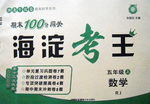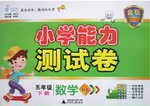题目内容
18.__________ to a university,whether it is a famous one or not,doesn‘t necessarily mean you will succeed in your future life.( )| A. | Admitted | B. | To admit | C. | Being admitted | D. | Admitting |
分析 被一所大学录取,不管它是否是所著名的大学,并不一定意味着你将在未来的生活中取得成功.
解答 分析句子成分可知,非谓语动词作主语,作主语的非谓语应用动名词或不定式,所以排除选项A;"被…录取"应用短语be admitted to,所以排除选项B、D.故选C.
点评 本题考查动名词的被动式,表示非谓语动词与句子主语的关系是动宾关系,动名词的被动式是being done.

练习册系列答案
 期末100分闯关海淀考王系列答案
期末100分闯关海淀考王系列答案 小学能力测试卷系列答案
小学能力测试卷系列答案
相关题目
8.Directions:Read the following passage.Answer the questions according to the
information given in the passage.
Kids and Ponds
Years ago there was a group of kids who would hang around at some local ponds in the woods near their houses in Warwick,Rhode Island.In summer they caught frogs and fish.When winter arrived they couldn't wait to go skating.Time passed,and the ponds became the only open space for the kids to enjoy themselves in that neighborhood.
One day.a thirteen-year-old boy from this group of kids read in the local newspaper that a developer wanted to fill in the ponds and build over a hundred small houses called condominiums.So the boy went door to door and gathered more than two hundred signatures (签名)to stop the development A group of citizens met and decided to support him.
At the meeting of the town planning board (委员会),the boy was quite nervous at first and spoke very softly.But when he saw the faces of his friends and neighbors in the crowd and thought about what was happening to their favorite ponds,his voice grew louder.He told the town officials that they should speak for the citizens.He also insisted that they should leave enough space for children.A few days later,the developer stopped his plan.
Nine years later,when that teen was a senior in college,he was informed that the developer was back with his proposal to build condominiums.Now twenty-two years old,he was studying wetlands ecology.He again appeared before the town planning board.This time as an expert witness,he used environmental protection laws to explain restrictions on development in and around wetlands and the knowledge of wetlands ecology to help improve the development.Finally some condominiums were built,but less than half the number the developer wanted.The ponds where those kids used to hang around were protected by a strip of natural land,and are still there today.
81.What did the kids like to do at the local ponds in winterThey liked to go skating?
(No more than 6words)(2marks)
information given in the passage.
Kids and Ponds
Years ago there was a group of kids who would hang around at some local ponds in the woods near their houses in Warwick,Rhode Island.In summer they caught frogs and fish.When winter arrived they couldn't wait to go skating.Time passed,and the ponds became the only open space for the kids to enjoy themselves in that neighborhood.
One day.a thirteen-year-old boy from this group of kids read in the local newspaper that a developer wanted to fill in the ponds and build over a hundred small houses called condominiums.So the boy went door to door and gathered more than two hundred signatures (签名)to stop the development A group of citizens met and decided to support him.
At the meeting of the town planning board (委员会),the boy was quite nervous at first and spoke very softly.But when he saw the faces of his friends and neighbors in the crowd and thought about what was happening to their favorite ponds,his voice grew louder.He told the town officials that they should speak for the citizens.He also insisted that they should leave enough space for children.A few days later,the developer stopped his plan.
Nine years later,when that teen was a senior in college,he was informed that the developer was back with his proposal to build condominiums.Now twenty-two years old,he was studying wetlands ecology.He again appeared before the town planning board.This time as an expert witness,he used environmental protection laws to explain restrictions on development in and around wetlands and the knowledge of wetlands ecology to help improve the development.Finally some condominiums were built,but less than half the number the developer wanted.The ponds where those kids used to hang around were protected by a strip of natural land,and are still there today.
81.What did the kids like to do at the local ponds in winterThey liked to go skating?
(No more than 6words)(2marks)
82.How did the boy win the citizens'supportHe went door to door and gathered their signatures? | |
| (No more than 10words) | (2marks) |
| 83.What did the boy tell the town officialsHe told them they should speak for the citizens and leave enough space for children.? | |
| (No more than 16words) | (3marks) |
84.What helped the boy to protect the ponds successfully nine years laterEnvironmental protection laws and the knowledge of wetlands ecology helped him.? | |
| (No more than 12words) | (3marks) |
9.From the moment babies are born,patents are helping them to be released into the world,not to__them or to control their lives for the rest of life.( )
| A. | hold on to | B. | put up with | C. | give in to | D. | break up with |
6.______your compositions carefully and some spelling mistakes can be avoided.( )
| A. | Having checked | B. | Check | C. | Checked | D. | Tocheck |
3.I didn't think I'd like the movie,but actually it _____ pretty good.( )
| A. | has been | B. | was | C. | had been | D. | would be |
3.We were delayed at the airport.Otherwise,we here by lunch.( )
| A. | must have been | B. | could be | C. | should be | D. | would have been |